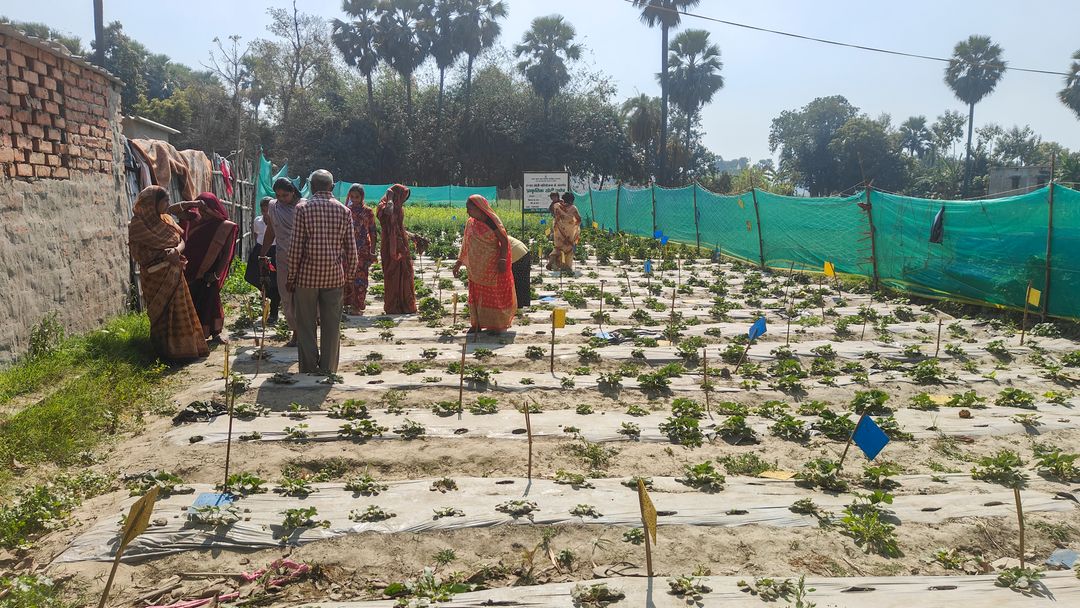
Muzaffarpur, Feb 26 – For Kiran Kumari of Muzaffarpur, borrowing money at steep interest rates was once an unavoidable reality. Today, thanks to a revolutionary community loan system, she has not only escaped the debt trap but also secured a brighter future for her family.
Across Bihar, women who once struggled to make ends meet are now growing strawberries, constructing homes, and investing in their children's education through SHG Plus—a reimagined version of traditional self-help groups (SHGs) that promotes financial inclusion, transparency, and collective empowerment.
A Model Built by Women, for Women
Unlike conventional SHGs, SHG Plus evolved through the experiences and aspirations of rural women themselves, with support from the Aga Khan Rural Support Programme India."We used to borrow money from lenders at 60% interest. Now, through SHG Plus, it's only 2%," says Kiran Kumari, a member of Kiran Shakti SHG Plus in Harpur Mukund. "We no longer need to seek loans from outside sources."
Financial Independence Through Community Lending
The SHG Plus model operates on a straightforward principle: women pool their weekly savings, contributing as little as Rs 20 per share, called ‘mohar’. This collective fund provides small loans to members at minimal interest.One of the key innovations is its emphasis on annual share-outs, transparent record-keeping, and inclusive leadership, ensuring financial discipline and empowering members with decision-making roles.
"We meet weekly and handle accounts openly," explains Kiran. "We collectively decide loan amounts, interest rates, and profit allocation." Pictorial record-keeping ensures accessibility even for semi-literate members.
Transforming Lives in Rural Bihar
For Savita Devi from Pachal Mubarak, SHG Plus provided a stepping stone into strawberry farming—an unconventional yet promising venture. "I never thought I would grow strawberries. If it’s profitable, I’ll expand further," she says.The movement has spread across Bihar, with members investing in solar-powered borewells, modern farming, and home construction.
Shruti Singh utilized her share-out money to install a solar-powered borewell, investing Rs 1.35 lakh and earning an annual profit of Rs 17,000.
For Bena Devi, the scheme has provided more than financial relief—it has reshaped her role in the household. "Now, I am a decision-maker. With my share-out money, I built a house, paid for my child's education, and even invested in gold," she shares.
Breaking the Cycle of Debt
SHG Plus has become a safety net for women facing medical emergencies and educational expenses. Sameena Khan used her funds for medical treatment, while Pratibha Kumari ensured her children's education.Mukesh Chandra, team leader at Aga Khan Rural Support Programme India, credits the model’s success to capacity building and financial discipline. "The program not only empowers women economically but also strengthens their ability to make key decisions," he notes.
With higher savings, improved credit discipline, and enhanced financial independence, SHG Plus is proving to be a game-changer in rural Bihar, fostering self-reliance and collective growth among women.
Last updated by a enewsx: